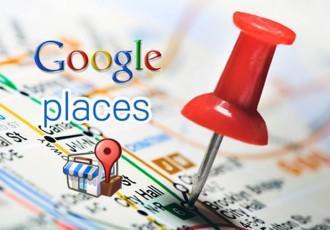 As Google recently roll out its Pigeon Update for local search for US English results, quite lot of webmasters have been worrying about how the new update will affect their business website search traffic.
As Google recently roll out its Pigeon Update for local search for US English results, quite lot of webmasters have been worrying about how the new update will affect their business website search traffic.
Though Google has not announced when the update would roll out more widely in other countries and languages, it’s still very important for every small business owner to ensure that their business websites are not largely affected.
What the Pigeon update for local search is about?
It has been disclosed that the aim of the update is to provide a more useful, relevant and accurate local search results.
And unlike Penguin and Panda updates, this is not a penalty-based update (aimed at cleaning the Google SERPs from low-quality content), but a core change to the local search ranking algorithm.
There aren’t many details disclosed about the so-called Pigeon yet, but some webmasters have reported considerable changes in their local rankings over the past few days.
Good Read:
5 Simple SEO Tips To Make Your Business Website Visible To Search Engines
Alexa Rank Or Google PageRank? Which One Should You Worry About?
How business can survive Google Pigeon update for local search
Though the changes in SERPs now seem to be quite considerable, the basic principles of local SEO are expected to remain the same.
So below are some general recommendations for your local business to get better Google exposure.
#1). Individual Google+ Local page for your business
Creating a Google+ Local page for your local business is the first step to being included in Google’s local index. Your second step is to verify your ownership of the listing.
This typically involves receiving a postcard/letter from Google containing a pin number which you must enter in order to complete verification.
#2). Proper category for your Google+ Local page
If you wish to appear in the local results for a search like “dentists in denver”, your business must be categorized as a dentist.
If it is categorized as a certified public accountant, you have no hope of appearing for your important search terms.
#3). Local area code on Google+ Local page
Using local area code phone number as a primary phone number on Google+ Local page is considered a best practice.
The area code of the phone number should match the area code/codes traditionally associated with your city of location.
#4). NAP on your website matching NAP on your Google+ Local page
Google will be looking at the website you’ve linked to from your Google Places/Google+ Local page and cross reference the name, address and phone number of your business.
If all elements match, you’re good to go.
#5). NAP consistency in all your business listings
Make sure your business name, address and phone number are also consistent in all local directories where your business is listed.
Different addresses listed for your business on Yelp and TripAdvisor, for instance, may put your rankings to nowhere.
#6). Positive reviews on Google+ Local page and on third-party sources
Large number of positive customer reviews on Google+ Local page and on third-party sources can be really helpful too. This is because the number of positive reviews has a proven influence on local search rankings.
So make sure to encourage happy customers to leave positive reviews of your biz.
#7). City or state included into your website’s title tags
Another important factor for your “local” landing page is to have the city or state you’re targeting included into its Title tag.
#8). Product/service keyword in business title
It is also believed that having the name of a core product or service in your business name may give you some advantage over competitors who lack this.
NB: Majority of the texts in this article first appeared on GOOGLE LAUNCHES NEW PIGEON UPDATE —
how does it affect your website?

